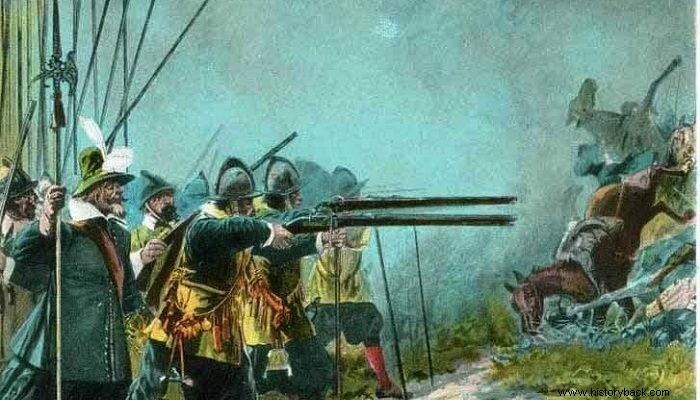
The Thirty Years War (1618-48) is characterized as the most destructive conflict in the history of Europe after the Barbarian invasions and before the Napoleonic Wars. It is wrongly considered a religious war as the conflict between Roman Catholics and Protestants was only the occasion.
The then Roman Catholic France had entered the conflict on the side of the Protestants against the also Roman Catholics of the Holy Roman Empire of the Habsburgs and the Bavarians and Spaniards of the same faith. Thanks to the intervention of the Swedes, the forces opposing the Habsburgs had almost triumphed even after the death of the great Swedish king Gustavus Adolphus. However, in the winter of 1643 a battle almost decided the outcome of the war...
Surprise in Tutlingen
At the beginning of November 1643, two opposing armies were maneuvering in the area of the current German state of Baden-Württemberg. The Franco-German one, under the Danish general Josiah Randsau , had 18,000 men. Its rival, Imperial, under Marshal Franz von Mercy , had 15,000 men.
Mercy's force consisted of Spanish, Bavarian and Lorraine soldiers. At that time armies in the winter would stop operations and hibernate in prepared camps or in cities. The Danish head of the Franco-German army decided that, as November had come, it was a good time to rest his army in the area of Tutlingen .
Tutlingen is a small town on the banks of the Danube, near the current German-Swiss border. Radsau also placed garrisons in the nearby towns of Millingen, Millheim and Meringen and quietly waited for spring to resume operations. Randsau has gone down in history for his courage, not his strategic skills...
Thus, while the Danish general was idle, von Mercy decided to attack the sleeping enemy by surprise. In fact, in order not to be noticed, he attacked from the least expected direction, from the southeast.
Slaughter of the Sleepers
On the afternoon of November 24, 1944, Imperial General Johann von Wert led 2,000 horsemen and attacked the French outposts at Meringen. The surprise was absolute. An entire French infantry regiment was crushed before it could even fight.
Then the Bavarian dragons (mounted infantry at the time) moved in a flash and neutralized the French objectives around Tutlingen allowing von Mercy's army to approach undetected. The Imperials immediately attacked the city cemetery against the French who were guarding the French army's guns and orches and easily overpowered them.
German cavalry allies of the French attempted to counterattack, but were soundly defeated. Then an imperial division under Caspar von Merci (marshal's brother), crushed the German infantry allies of the French.
The French Cavalry who had in the meantime recovered himself did not attempt to fight, but abandoning the French infantry fled. The ill-fated French infantry were cornered at Tutlingen and eventually surrendered along with Randsau. A single French division of 2,000 held out longer but eventually it too surrendered after a week's siege.
The Franco-German army was destroyed losing 11,000 men (4,000 killed and wounded, 7,000 prisoners) and all her guns, transports and baggage. It was a big disaster product of a truly amazing maneuver. In addition to Randsau, the imperialists also captured seven enemy generals and nine colonels.

